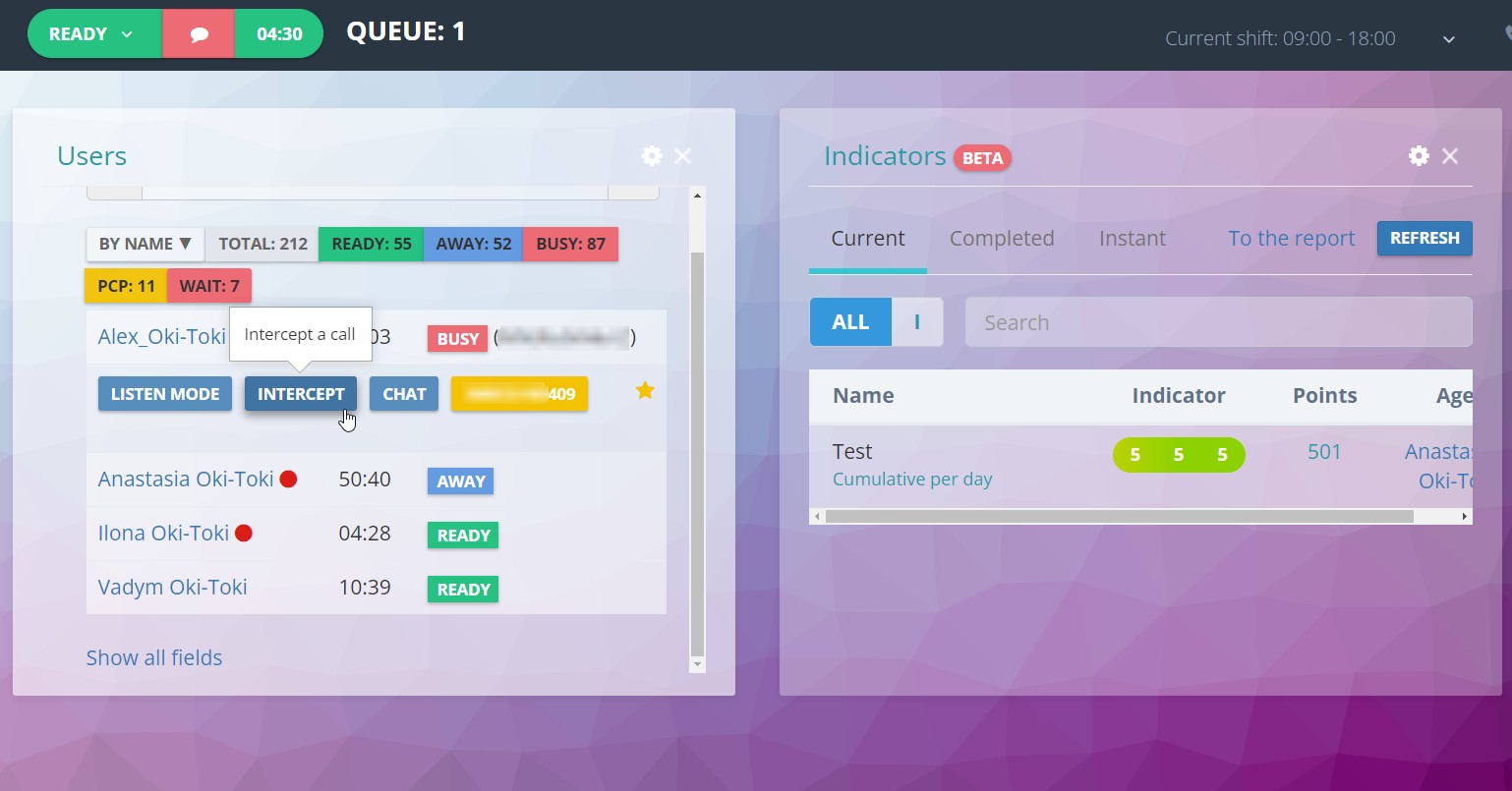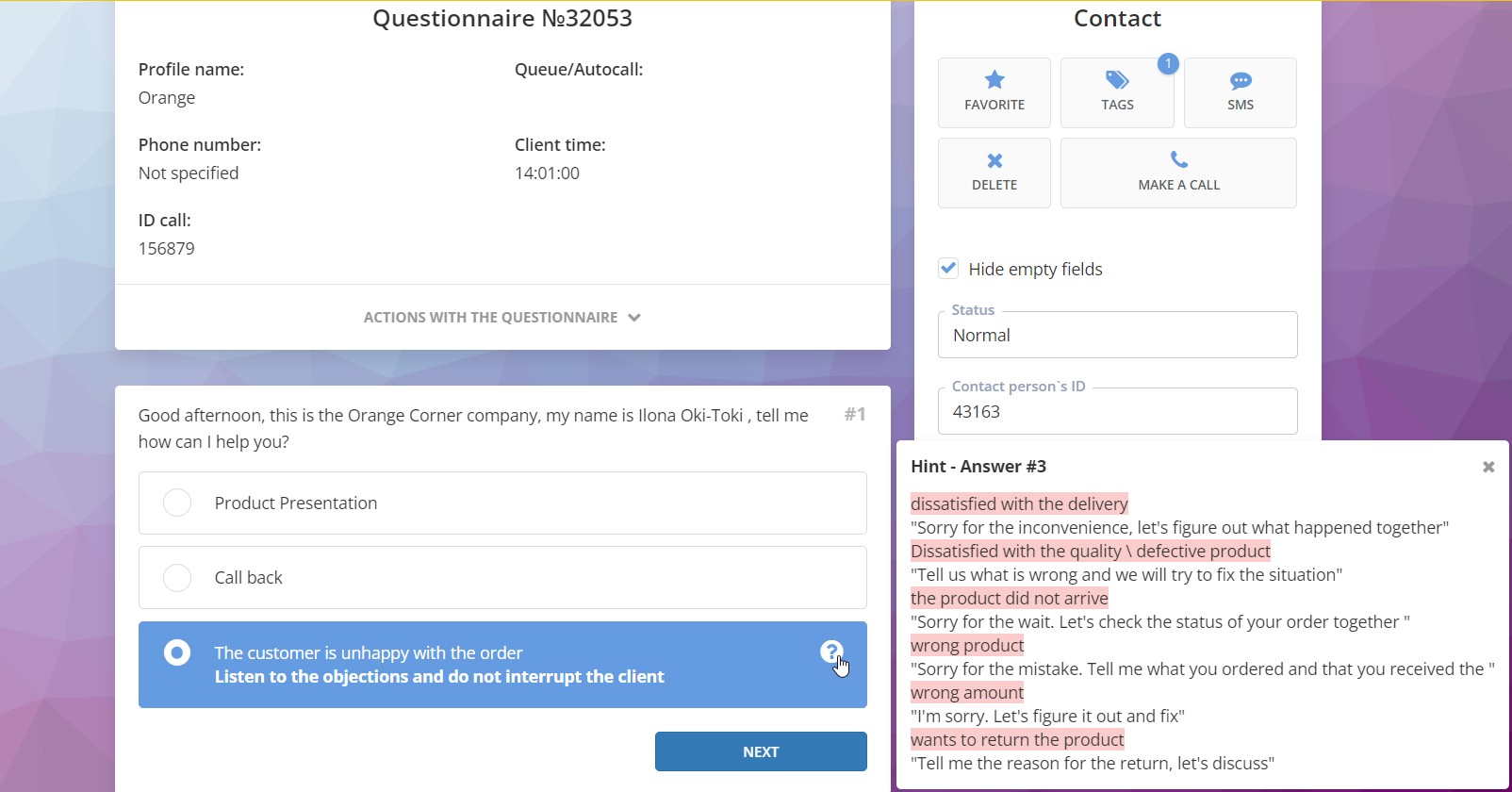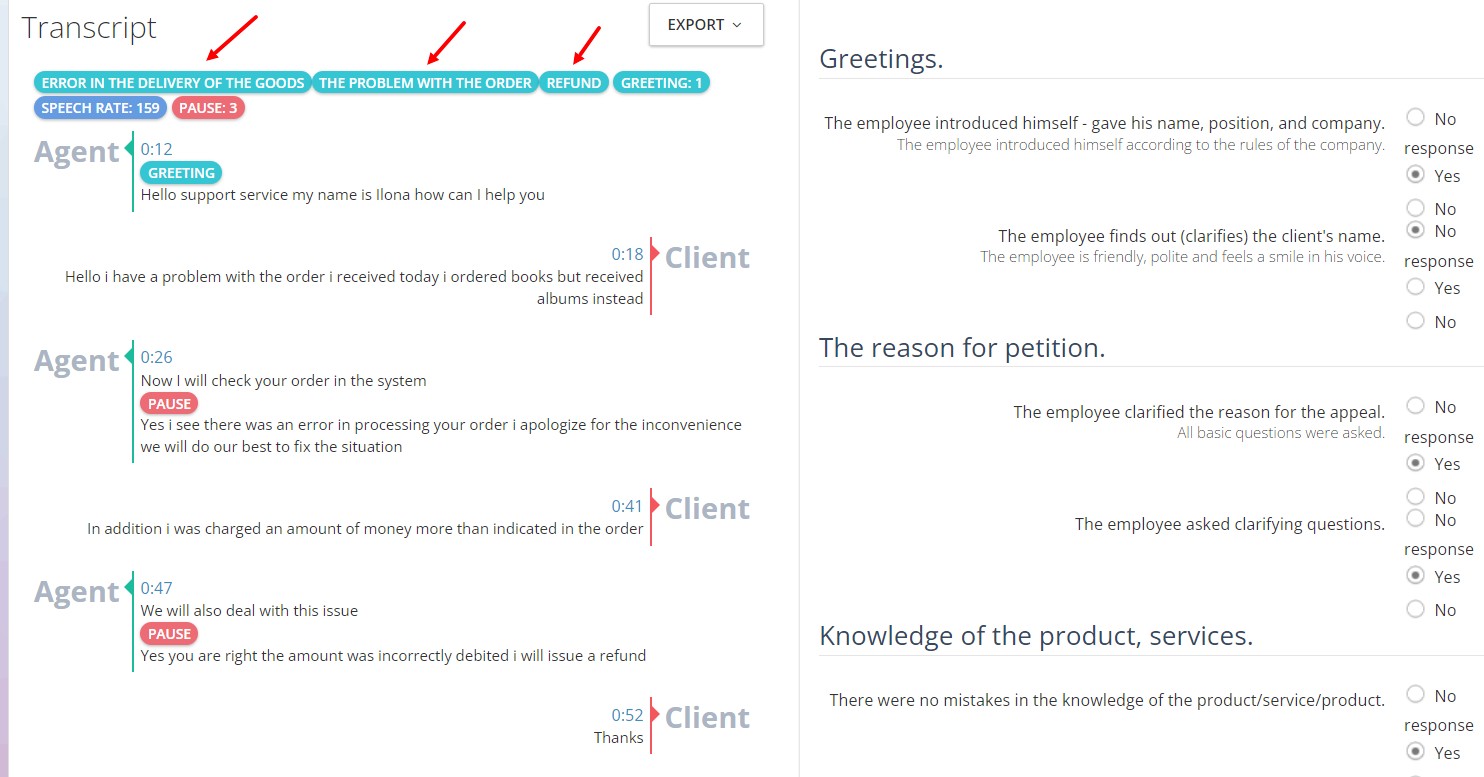Communication with an angry customer is a challenging situation that causes stress and feelings of uncertainty. Such dialogues require agents to invest significant energy in controlling their emotions and reactions. We have outlined several methods and recommendations on how to help call center agents cope with their emotions after handling an angry call. This article will be useful for agents themselves to read, helping them to stay resilient and to go to the next customer.
It’s not the agent’s fault
The first step is to convince agents that customers are angry not because of them. Explain to the staff that there are many reasons why customers may be irritated, such as:
- The product or service doesn’t meet expectations;
- The customer had to wait a long time in the queue to connect with the agent;
- The customer was called at an inconvenient time to talk;
- Personal issues, such as financial difficulties, feeling bad, etc.
Anger may also be unrelated to your organization at all. We all have days when nothing seems to go right, and fatigue means that even the slightest thing can turn stress into anger.
Assure the agents that it’s not their fault, none of the reasons are intentional, and it’s important for them to remain calm and professional.
In the Oki-Toki agent console, there is a feature to “intercept a call” or listen to the agent’s conversation in real-time, which will be useful during difficult dialogues. A manager or supervisor can “take over” a difficult conversation and assist an agent who is struggling.

Step-by-step guide for the agent
Prepare agents with a pre-agreed sequence of actions for dealing with an angry subscriber.
Our instinctive reaction to anger is “fight or flight.” We want to respond in the same kind or run away and protect ourselves. However, in a call center, agents have to suppress these instincts and remain calm.
The best way for agents to respond to an angry customer is to detach themselves, acknowledge that it’s not personal, and understand the customer’s point of view. Allow the customer to express their opinion and respond only when they’ve finished.
These steps can provide agents with a framework for maintaining calm and focus during the heat of a heated dialogue:
- Step 1: Empathize and reassure
“I’m sorry you’re experiencing this. I’m determined to resolve this; please answer a few questions to clarify everything.”
If you’re looking for similar examples, read our article: “Ready-made scripts for call center agents.“
- Step 2: Gather information
“As I understand, you haven’t received notifications about the payment due date and haven’t paid the credit on time. It’s an unpleasant situation, but it’s fixable.”
- Step 3: Provide options
“Thank you for confirming. The options I can offer include setting up notifications via SMS and email, as well as a robot call with a voice message.”
- Step 4: Address the root cause
“I’ve set up a monthly payment reminder. Can I check if we have the correct contact details for you, as our records show that the notification was sent last month?”
- Step 5: Address unresolved issues
“Can I assist you with anything else?”
A pre-prepared script for the agents will help them stay on track and find a solution in a challenging call. In Oki-Toki hints for the agents can be added to the form to make it easier for them to respond to the customer during a complex dialogue.

How to build a trusting relationship with a client read on the blog.
Contingency action plan
Provide agents with a backup plan for the case when the situation with the customer does not improve.
In most cases, when an agent listens without interruption, responds calmly, and assists, it reduces aggression. The customer may even apologize for their outburst of anger.
Usually, it is not advisable to interrupt the customer, but there is an exception when they are rude and disrespectful. No employee should tolerate this.
If the customer continues to shout, use foul language, or resort to personal attacks, it is important for agents to know how to act in accordance with the company’s policy. This could involve ending the conversation, transferring the customer to a manager, resolving the issue independently, or using other methods to manage the situation.
Rest after call
Provide agents with the space they need to recover after a challenging call.
When agents finish a conversation with a difficult customer, their body is filled with adrenaline. Additionally, they suppress a range of emotions and may not always be able to immediately transition to the next customer conversation. At the very least, they need a moment to release some energy and emotions.
Firstly, it will be helpful for them to stand up from their desk and take a walk. Just a few minutes away from the workstation will help them take their mind off the call.
In some call centers, a special quiet room is provided for agents where they can rest for 5 minutes, allowing them to recharge.
Secondly, heightened emotions may leave agents feeling upset, drained, angry, or disappointed. Having the opportunity to talk to someone and be heard will help them cope with these feelings. Let them know that they did a great job staying calm during the conversation.
Thirdly, acknowledge that the conversation was emotionally challenging. Be flexible and give the agent more time and support. Assure the employee that they handled the situation well and that you support them.
Future prospects
Take the time to consider what you can learn from an angry customer. Instead of dwelling on difficult conversations, focus on what you can learn from that experience.
Set aside time to talk to the agent and clarify what the customer said. To automate the process, you can use speech analytics from Oki-Toki and a two-way call transcript.
By using hashtags, you can tag both successful and problematic calls. In the future, when building a report, it will be easier for reviewers to identify complex dialogues and analyze calls.

Such incidents could be used as an opportunity to train agents and take action. This will reduce the probability of repeating negative experiences.
Finally, at the end of the day, thank all call agents for their hard work. Remind them that you and the majority of customers appreciate their ability to solve problems excellently.
Support strategies for agents
After dealing with a challenging customer, an agent will need special support to cope with the emotional pressure. Here are a few methods that can help them:
- Breathing exercises: Simple breathing techniques can help agents to release tension and calm down after difficult calls. For example, deep inhales and exhales for a few minutes can restore calmness.
- Breaks and rest: Give agents breaks between calls so they can relax and regroup after unpleasant conversations. Even a few minutes of pause can maintain emotional balance.
- Peer support: Foster a supportive atmosphere within the team where agents can share their emotions and receive support from colleagues. Knowing that they are not alone in their feelings, agents can more easily handle emotional stress.
- Training and workshops: Provide agents with training programs and workshops on emotional support and stress management. This will help them to develop self-regulation skills and emotional resilience in challenging situations.
Combining these methods will help your agents cope with emotional stress after angry calls and remain professional and empathetic in any circumstances.



